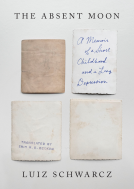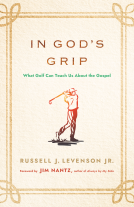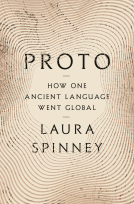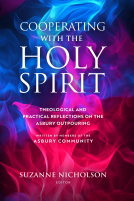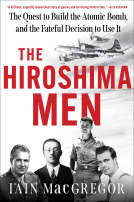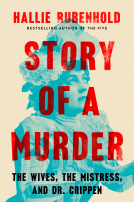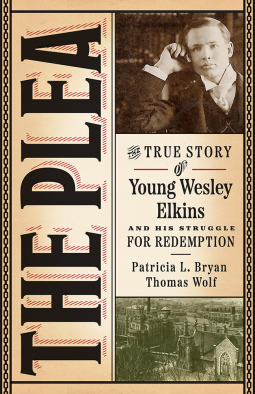
The Plea
The True Story of Young Wesley Elkins and His Struggle for Redemption
by Patricia L. Bryan; Thomas Wolf
This title was previously available on NetGalley and is now archived.
Send NetGalley books directly to your Kindle or Kindle app
1
To read on a Kindle or Kindle app, please add kindle@netgalley.com as an approved email address to receive files in your Amazon account. Click here for step-by-step instructions.
2
Also find your Kindle email address within your Amazon account, and enter it here.
Pub Date Jul 21 2022 | Archive Date Jul 21 2022
University of Iowa Press | University Of Iowa Press
Talking about this book? Use #ThePlea #NetGalley. More hashtag tips!
Description
On a moonlit night in 1889, Iowa farmer John Elkins and his young wife, Hattie, were brutally murdered in their bed. Eight days later, their son, eleven-year-old Wesley Elkins, was arrested and charged with murder. The community reeled with shock by both the gruesome details of the homicides and the knowledge of the accused perpetrator—a small, quiet boy weighing just 75 pounds.
Accessible and fast-moving, The Plea delivers a complete, complex, and nuanced narrative of this horrific crime, while shedding light on the legal, social, and political environment of Iowa and the country in the late 1800s and early 1900s.
Advance Praise
“The Plea is not just an impeccable piece of historical scholarship, but a gripping work of narrative nonfiction. Devoid of any taint of sensationalism, the book vividly reconstructs the fascinating, long-forgotten case of an eleven-year-old committing parricide, the boy’s long struggle to rehabilitate himself, and his ultimate redemption. An immensely readable and thought-provoking book—one with particular relevance in our own age of increasing juvenile homicides—it will captivate both American history buffs and fans of true crime.”—Harold Schechter, author, Manic: The Bath School Disaster and the Birth of the Modern Mass Killer
“Bryan and Wolf are not only superior scholars but also superior storytellers of the highest order. Meticulously researched, The Plea grips and surprises start to finish—revealing layers of justice and injustices, both personal and political and more. True crime aficionados will be enthralled.”—Art Taylor, Edgar Award–winning author, The Boy Detective and the Summer of ’74 and Other Tales of Suspense
“Thanks to their scrupulous research, Patricia Bryan and Thomas Wolf offer a fascinating, richly detailed, cinematic account of the life-sentence conviction of eleven-year-old Wesley Elkins for first-degree murder, his struggle for pardon or parole, and his life after release from prison. As a bonus, thanks to the rich context they provide, readers will learn about many other significant issues in Iowa history, including the history of the state penitentiary in Anamosa, Iowa, and the evolution of penal practices, legal and social attitudes regarding child offenders, and even the broader social and political history of Iowa in the late nineteenth and early twentieth centuries.”—Marvin Bergman, former editor, The Annals of Iowa
Available Editions
| EDITION | Other Format |
| ISBN | 9781609388393 |
| PRICE | $19.95 (USD) |
| PAGES | 212 |
Featured Reviews
 Mike M, Media/Journalist
Mike M, Media/Journalist
This was an intriguing book. Anyone interested in criminal law would be fascinated by this case. This is a good reason to believe that our process has gotten better since the days of Wesley.
 Josie S, Reviewer
Josie S, Reviewer
Patricia Bryan and Thomas Wolf’s book The Plea, is a story of tragedy and redemption. The primary focus of the book is the life of Wesley Elkins. It follows the passage of his life as a young boy living in Iowa, his conviction of murder at age eleven to his eventual triumph over much adversity. In the course of the book the reader is exposed to many issues related to Wesley’s story, such as the pursuit of justice, the role of media influence, political control, nature versus nurture, criminal reform, social justice and the power of gossip to name a few.
Bryan and Wolf’s detailed research uncovers the sad story of a young boy whose experience of abuse and instability leads to an horrific crime, which results in his incarceration. The authors account of the subsequent discussions in newspapers and private letters debating Wesley’s guilt or innocence and his character, the details about local gossip, as well as explanations of the frustratingly long road of repeated appeals for a pardon were informative and fascinating. The many interesting, influential and altruistic characters that were part of Wesly’s life and story brought warmth and relief to an initially bleak story. The coverage of his later life was gratifying and provided an encouraging message about the power of hard work and the human spirit to overcome many obstacles.
I enjoyed The Plea very much. and and would recommend it to others.
Thank you to NetGalley and University of Iowa Press for the eARC of this book in exchange for my honest review.
Thank you to NetGalley and the publisher for providing this book in exchange for an honest review
What a fascinating book! I'd never heard of this case before. Wesley Elkins committed a horrific crime as a child and was sent to prison at 11 years old. This was long before juvenile court and detention centers. I can't imagine how hard it must've been to survive, and remarkably thrive, after what he experienced.
 Vikki B, Reviewer
Vikki B, Reviewer
This book gives great detail about what life may have been like for Wesley Elkins, life was so bad that he killed his parents! I didn’t want to believe it at first, the tragedy unfolds to reveal the truth.
A young boy is a killer, the author’s research is thorough and gives the reader food for thought. There is much discussion about Wesley, the court of public opinion has a strong influence.
I enjoyed reading the specifics, background and, to me, great sadness around this young boy’s experiences.
I would recommend this book to anyone interested in true crime.
Thank you to the publisher, NetGalley and author for the opportunity to read this book.
I voluntarily read and reviewed an advanced copy of this book, all thoughts and opinions are my own.
John Elkins and his younger wife Hattie were brutally murdered one October night in 1889 in Iowa. Their eleven year old son confesses to shooting his father in the head and bludgeoning his step mother in the head with a mallet and is charged and arrested for the murders. Wesley Elkins is just a child, and the community wonders what would make a child go to such drastic measures as to murder his parents. Wesley’s parents regularly whipped him, he was beaten a lot over pretty much everything, his step mother didn’t want him unless he was taking care of his baby step sister, and he was often made to sleep in the barn instead of in the house. Wesley was also told to give up education and work on the farm which was unfortunate because Wesley was an exceptional student who really enjoyed learning and reading. Because his parents were abusive, he felt like he had no way out and so he killed them without really thinking. Wesley goes to prison, a child.
This is the story of how a small child became a murderer and his story of redemption and what became of him after he got released from prison. This book is very well written and extensively researched, it provided me with so much information. I think the story of Wesley Elkins was well told and one I won’t soon forget.
 Michael E, Reviewer
Michael E, Reviewer
The fascinating story of Wesley Elkins, imprisoned with a life sentence for killing his father and step-mother in 1890. We learn early on that the young Elkins was most likely motivated by dreams to escape an abusive relationship with both parents, and had the misfortune of living in a time when children were often tried as adults within consideration for their age or mental capacity. The story explains the efforts over the years to free Wesley from his sentence, either through pardon or parole, as well as the very strong feeling from many that Wesley should remain in prison until his last breath. A good deal of this sentiment was fostered by the belief that Wesley was driven by evil that was passed on to him in utero by his mother.
The book is a riveting read, very nicely written and exhaustively researched. Some slight distractions in the devotion of an entire chapter to the a short story from that era which was loosely based on Wesley's efforts to be freed from prison. What (in my estimation) should have been worthy of little more than a passing mention was a quite lengthy re-telling of the story. It almost felt as though someone suggested the book be padded somewhat in order to reach the 200-page mark. It simply felt out of place and unnecessary.
That's hardly a reason to quibble over the entirety of the book, however. As I'm certain others will have already suggested, this has the makings of a good movie.
Sincere appreciation to NetGalley, the publisher, and the authors for a free digital ARC in exchange for this honest review.
I like books about killers from long ago times and this one fit the bill. It’s about a young boy who is accused of killing his dad and step-mother at age 11 in a twisted, bloody murder scene. What follows is what makes the book interesting. All of what happens after the arrest of Wesley Elkins going forward is quite a story. The laws back then regarding children were much different than they are now. There was no juvenile court. The political scene was ready for some change in that area of law at that time. This young man’s life started moving forward again in April 1902, 120 years ago this month. A fascinating read about an unusual life back in that period. I received an advance review copy for free, and I am leaving this review voluntarily.
This book has something for everyone. Go read it. History! True crime! Wonderful storytelling! Well-researched! Fascinating telling of an 11yo’s life in and out of the US system of justice in the 1889 and beyond. The writing is exceptional - reads like fiction. Heartfelt thanks to University of Iowa Press for the advanced copy. Don’t miss this one.
 Reviewer 762493
Reviewer 762493
I don't usually read books about true crime, but this one caught my eye - it's not every day that an 11 year-old boy murders someone. I was half-expecting to learn Wesley Elkins hadn't killed his father and stepmother at all, only to discover he did in fact eventually plea guilty and never retracted that plea later on.
The story of the crime itself is pretty straightforward: in the late 19th century, 11 year-old Wesley Elkins was (probably) mistreated at home. One night he shot his father and hit his stepmother with a club until she also died. Initially, enough people in the town believed he was innocent, only for someone to extract a confession from him not too long afterwards, resulting in mostly everyone turning violently against him, including his own lawyer. He was sentenced to spend the rest of his life in jail.
As he grew older, he discovered that he could have gotten a lighter sentence had his age been invoked during the trial and, with the help of outside friends, he began asking for a pardon, even if it proved elusive to obtain.
The strength of the volume lies in the description of the world Wesley lived in: what the justice system looked like; who the people involved in his trial were and what their interests might have been; the lack of differentiation between children and adults, except by the discretion of the judge; the power of a community to damn someone; the prison system and the philosophy behind it; the prison he was actually in, what it was like, and what principles it was founded on.
It's an exploration of society even more than it is a story about a particular person; yet even so, we get to find out as much as we can about Wesley Elkins. Where court papers, newspaper articles and official letters end, Patricia L. Bryan looked into other sources (censuses, company records etc.) to reconstruct his life after regaining his freedom and becoming an upstanding citizen and a great help to his family.
Readers who liked this book also liked:
Rev. Dr. Suzanne Nicholson
Christian, Nonfiction (Adult), Religion & Spirituality
